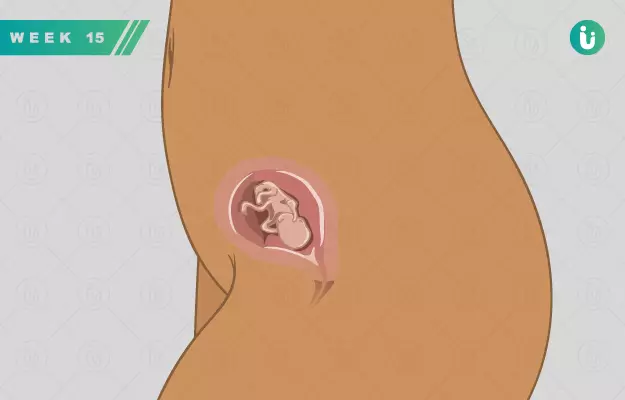Welcome to the 15th week of pregnancy. You’re gently gliding into the second trimester, and are now one week closer to meeting your little bundle of joy in person. You’re likely showing a little baby bump now, which is bound to get you some attention, especially from those who don’t yet know that you’re pregnant.
With symptoms like morning sickness now a thing of the past, you should gear up for the rest of this trimester and the next one. This means maintaining your pregnancy diet and pregnancy exercise routine. You should make sure that you’re up-to-date with your obstetrician’s appointments and check ups during pregnancy. Ask your doctor if you need to get an ultrasound done as well.
What you need to be most cautious of at this time of pregnancy are vaginal infections. If you notice any smelly vaginal discharge right now, you should contact your doctor and get a checkup done. Any kind of infection at this point can affect your wellbeing as well as that of your child, so it’s best to take ample care and get medical attention without any delays.
Your baby is developing rapidly inside you, with even some hair growth starting at this point. No, you won’t feel your baby kick yet, but be assured that he or she is indeed moving in the amniotic sac inside you. Here’s everything you need to know about the 15th week of pregnancy.










































